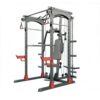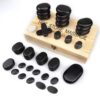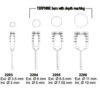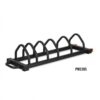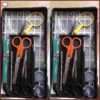Horrible Transport Fare, Garri No More Snacks- Nigerians Lament
Regret the state of the economy
…use various coping mechanisms
Nigerians are coming up with various “structural adjustment strategies” to keep body and spirit together as the country’s economy continues to crumble, according to the News Agency of Nigeria.
Speaking with NAN in Ibadan on Friday, a variety of respondents admitted that they have tried different coping strategies in addition to limiting their limited resources.
Mrs. Funmi Alli, a public worker, said she had spent time teaching her kids how to manage the resources at hand and prevent waste.
“In addition to lowering our spending patterns, I’ve informed them we can’t afford to buy anything needless any more in order to save more money.
She said, “I’ve also learned to reduce my fuel consumption by parking my car somewhere and using public transportation to get around the day’s work.”
According to Alli, she came in order to diversify her revenue streams in order to weather the harsh economic times.
Mrs. Sola Alawode, an accountant, claimed that her family had adapted to the circumstances by turning what had previously only been snacks into substantial meals.
“I informed my kids that Garri is now a big meal instead of a snack. According to Alawode, “if you’ve taken it, it means you’ve taken the meal for that time.”
“The best and very realistic way to answer you is to say that ‘God’s grace has been sufficient,'” stated Mr. Oluwasegun Abudioke, an entrepreneur.
“I’m lying down on an empty stomach, really hungry, as I speak to you. My closest expectations are still two weeks from now, but it’s difficult to predict how I’ll fare in the interim.
Mrs. Olubisi Adegoke, a food seller, said that her company was no longer profitable because of the constant rise in product costs.
“In order to supplement what I produced yesterday and restock for today, I had to borrow money from someone.
“I continue to run at a loss every day because I am no longer aware of the cost of the inputs I use to prepare food for sale, let alone turning a profit,” Adegoke stated.
Mr. Sanmi Olatunde, an employee at a company he would like not to name, stated that after looking over their spending plan, he and his family had cut back on their consumption.
“We have lowered our normal large-quantity purchases to small-quantity purchases for this period,” he stated.
Mrs. Motunrayo Aroloye, a different businesswoman, stated: “As we are all aware, Nigeria’s economic status has gotten scary and concerning. You have to make certain adaptations in order to survive in this economy.
“Tough times need tough responses. We now buy only the bare necessities and have reduced the amount of food we buy.
“We only spend money on necessities; we don’t currently spend money on wants.”
Speaking over the phone from Bayelsa, a public worker named Mr. Oluwatoyin Diyan stated: “Transport fare is terrible here.” In other words, I put my needs and my family’s needs first.
“As soon as I am paid, I put more of my attention into making sure that money covers my transportation costs to and from work as well as my meals.
“Any excess is then allocated to investments and savings, including foreign exchange and cryptocurrency trading.”
According to Supo Odeleye, a Christian preacher, people now manage the economy by putting their faith in God, saving money, and only purchasing necessities.
Respondent Mr. Aniekan Ben-Assam, who works for a private organization in Port Harcourt, stated that he depended on God because “the just shall live by faith.”
In her 56 years of life, dealer Labake Adepoju claimed she had never encountered such economic instability.
She claims that despite working for 12 hours a day, she seldom or never gets anything done.
“For the past eight months, despite my hard work, I can hardly feed my family.” Basic everyday and household necessities, including my favourite toiletries, are beyond my means.
“It’s even harder for me to get my teenage girls their sanitary pads,” she bemoaned.
Mr. Adekunle Ajakaye, a businessman, claimed he was unable to explain how the ongoing rise in the cost of products and services had not forced him out of business.
“I frequently travel to Cotonou, Benin Republic, and it always breaks my heart to see what I see when I get back to Nigeria.
“I can afford to pay N200 for a piece of roasted turkey, which I eat with satisfaction, but I can’t even afford a typical piece of fried fish in Nigeria.”
“It’s easy to buy goods in Cotonou, but it’s difficult to sell them peacefully in Nigeria,” Ajakaye said.
Due to financial circumstances, food vendor Mrs. Olusola Ojeleye was sent packing in January. She said that she had been attempting, without success, to bring her four children a meal of N600 for over a day.
“I used to have a food seller company, but it failed because I was unable to pay the prices for ingredients for soup, rice, beans, fish, and meat.
“My spouse earns N30,000 per month working as a security guard for a private company, but he hasn’t received his pay in over two months,” Ojeleye stated.
Credit: Allschoolabs, Nairaland























![PM160-4KG MEDICINE BALL + HANDLE [4KG]](https://allschoolabs.com/wp-content/uploads/2023/10/pm160-4kg-medicine-ball-handle-4kg-300x300-1-100x100.jpg)














